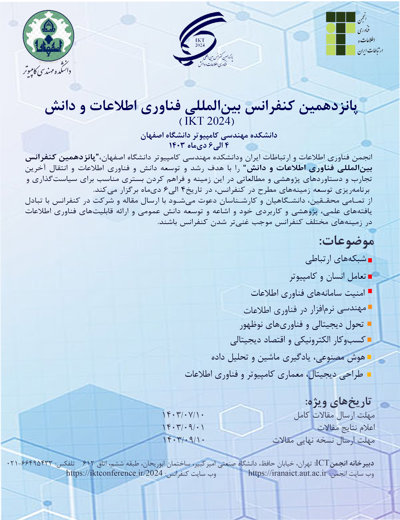0% Complete
Authors :
Keywords :
Abstract :
List of archived papers
سیده فاطمه نورانی - سحر مقراضی
Shakiba Rajabi - Komeil Moghaddasi
ُSaba Yadegari - Mohammad-Reza Keyvanpour
Arya VarastehNezhad - Reza Tavasoli - Mostafa Masumi - Seyed Soroush Majd - Mehrnoush Shamsfard
فاطمه مقدسی فریدنی - مونا جامیپور - شهناز اکبری امامی
Tina Samizadeh Nikoui - Ali Balador - Amir Masoud Rahmani - Hooman Tabarsaied
یوکابد امیری - حسام عمرانپور
محمد نصرتی مقدم - حسن حقیقی - مجتبی وحیدی اصل
Amir Mohammad Kouyeshpour - Hadi Veisi - Saman Haratizadeh
Erfan Rasti - Mohammad Ali Arami - Abbas Mohammadi




